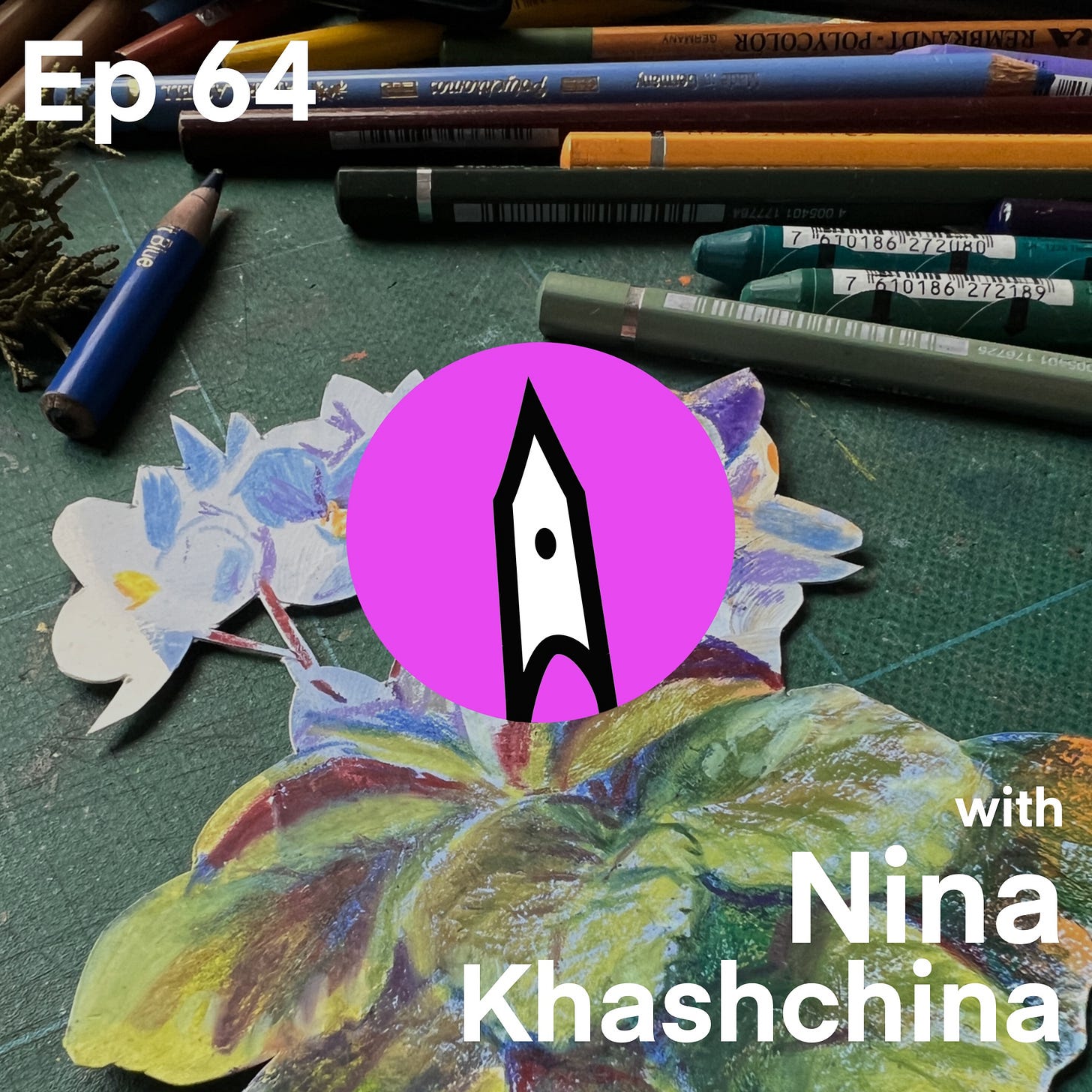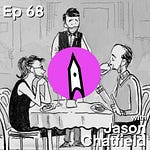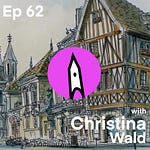Dear listener,
In Ep 64 of the SneakyArt Podcast, California-based illustrator Nina Khashchina speaks about her childhood in Kharkiv, Ukraine, growing up in the former USSR, her lifelong journey with art, and how she documents her life through sketchbooks. This is the first of a two-part conversation.
Listen to this episode on your choice of streaming service:
Spotify | Apple | PocketCasts | Google | Web | Gaana
☕ Like this episode? Buy me a coffee.
🔥 Love the show? Become a SneakyArt Insider.
What is this episode about?
We talk about why we both love to use brown paper in the autumn season. I learn about how to observe the little things of nature that give us sense of time and place, a sense of season and geography.
Since reading Sarah Bakewell’s excellent book “At the Existentialist Cafe” a few years ago, a quote by an early existentialist philosopher has stuck with me. Speaking about WW2, he said, “War is the ultimate destruction of the individual”.
This episode is about Ukraine and not-Ukraine. It is about war and not-war. It is about large things like nations, cultures, and languages. And it is about little things like flowers and seeds and the neighbour’s cat. It seems you need to address both - the little things and big things, both war and not-war - to understand conflict and suffering.
Because we are talking about contemporary events, it is necessary to disclose that this conversation was recorded mid-April. A lot of things have changed since then, and a lot of things have not.
A final point, we are drawing and taking notes throughout this recording. So occasionally you may hear the scraping sounds of pencils and fountain pen nibs against paper.
Enjoy.
Show Notes
[03:14] They decide to draw while recording
[06:50] The usefulness of a brown page sketchbook
Nishant: “I thought that the white paper is one end of the spectrum. It's just pure light. And every line that I make on it is pure dark. And so I can only go to degrees of darkness from pure white.
But the brown paper is in the middle of the spectrum. And I can go towards darkness with my black ink or darker colours. But I can also go towards light if I use my posca marker or if I use my gelly roll pen. So it's this bidirectional power.”
[11:50] Ukraine, and growing up in the Soviet bloc
[16:40] Learning art without the exposure to (or burden of) other artists’ works.
[31:00] Individual freedoms and the right to self-determination as a nation
Nina: “I don't think that I was moving towards something at first. I think I was moving away. The world that I saw the world of art was, um, it looked to me, um, like an unstable place.”
The idea of being a freelancer
[56:49] Keeping multiple sketchbooks open or using one at a time.
Lynda Barry, “Making Comics”
Ep 57 with John Muir Laws and nature journaling
Nina: “My, my parents, my mom in particular, always collected all sorts of, um, nature objects whenever we travel. The house even has, uh, several places where they would [keep] the most interesting seeds, the antler that they found in a forest while mushroom gathering, and like little bits of nature that really are fascinating to them because of some reasons that might be obvious or maybe very personal.”
Cathy Johnson and the Sierra Club Guide to Painting in Nature.
[1:15:44] Nishant talks about noticing trees. Nina talks about observing time pass through natural change rather than clocks and calendars.
Add your thoughts to the conversation.
Check out Nina’s excellent Substack newsletter to stay updated with her work.
Thank you for your time and attention. See you in the next one!


















